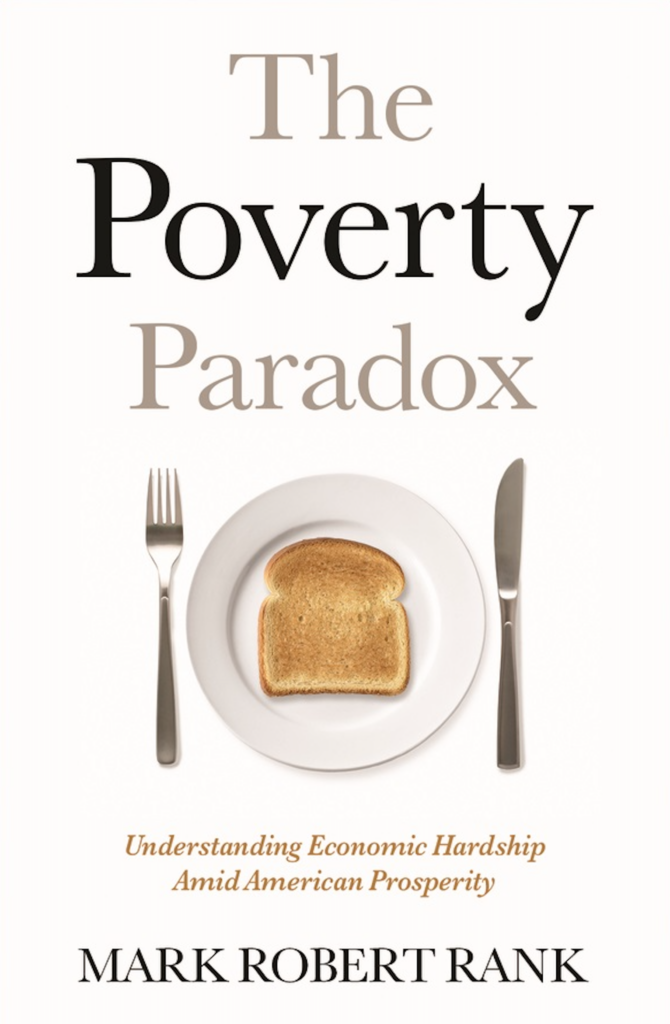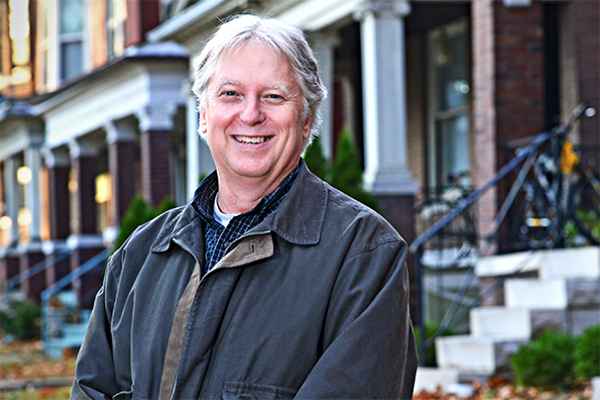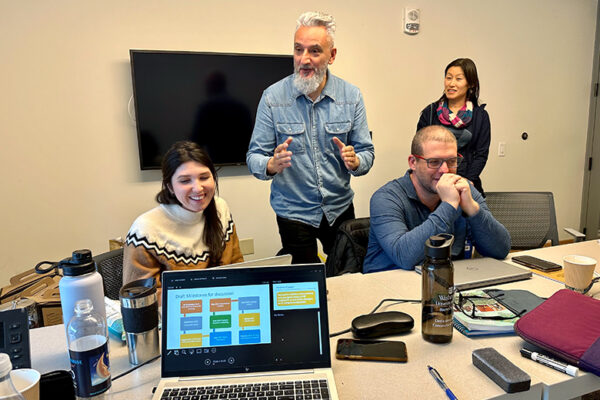
How can the United States, one of the wealthiest nations on earth, have the highest rate of poverty among industrialized nations? In a new book based on decades of research, renowned poverty expert Mark Rank, a professor at the Brown School at Washington University in St. Louis, develops a unique perspective for understanding this puzzle.
In “The Poverty Paradox: Understanding Economic Hardship Amid American Prosperity,” Rank, the Herbert S. Hadley Professor of Social Welfare, discusses an approach he has come to define as “structural vulnerability.”
“Structural vulnerability is a new way of understanding why poverty exists in America,” Rank said. “I have developed this perspective out of my research over a number of years. At its heart is the question of: Do you want to focus on who loses out at the economic game in the U.S., or do you want to focus on why the economic game produces losers in the first place? For me, the much more important question is to analyze the mechanisms as to how the economic game produces losers. Poverty is ultimately the result of failures at the structural level, which ensures that poverty will exist and persist.”
Among the structural failures are the shortage of decent-paying jobs and a strong safety net, he said.
Rank is recognized as one of the country’s foremost experts on issues of poverty, inequality and social justice. His research on the life-course risk of poverty has demonstrated for the first time that a majority of Americans will experience poverty at some point during their lives. He has published nearly a dozen books on poverty and wealth inequality.
“The problem of poverty in the United States is incredibly large and complex,” Rank said. “My life-course research shows that across the span of adulthood, 75% of Americans will experience either poverty or very-near poverty at some point in their lives. In addition, the United States has far and away the highest levels of poverty within the group of high-economy countries. The paradox in all of this is, of course, that at the same time, the U.S. is the wealthiest country in the world. This is where the title of the book comes from, ‘The Poverty Paradox’.”

The book looks at poverty and inequality from a new angle, providing a path for combating economic injustice in the years ahead.
“The good news is that I believe America is absolutely capable of reducing the extent of poverty,” Rank said.
“In the book, I lay out a number of strategies,” he said. “These strategies focus on addressing the failures at the structural level. Most important are increasing the number of jobs that pay a living wage and providing a robust social safety net to protect people from falling into poverty. If we could provide those two things, poverty would be reduced dramatically. The problem is that although it’s clear what needs to be done, the country appears to lack the moral and political will to do so.”
“The Poverty Paradox: Understanding Economic Hardship Amid American Prosperity” is published by Oxford University Press and will be released April 25.


